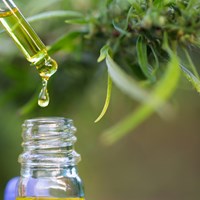Ninth Circuit rules that Delta-8 THC products are legal under the 2018 Farm Bill
Yesterday, in a groundbreaking decision, the Ninth Circuit held that “the plain and unambiguous text” of the 2018 Farm Bill legalized Delta-8 THC products derived from hemp. AK Futures LLC v. Boyd Street Distro, LLC, 9th Cir. No. 2-56113 (May 19, 2022), p. 13. As discussed below, this opinion fully endorses advocates’ view that even Delta-8 THC products derived from hemp CBD are legal products under federal law.
Background
In 2018 Congress passed – as it does every four years – a version of the Agricultural Improvement Act, otherwise known as the Farm Bill. Under the 2018 Farm Bill, though, Congress expressly legalized hemp for commercial purposes, distinguishing it from marijuana based on Delta-9 THC content. Indeed, Congress defined “hemp” as:
- “the plant Cannabis sativa L. and any part of that plant, including the seeds thereof and all derivatives, extracts, cannabinoids, isomers, acids, salts, and salts of isomers, whether growing or not, with a delta-9 tetrahydrocannabinol concentration of not more than 0.3 percent on a dry weight basis.” [emphasis added]
Many people assume that a hemp product, by virtue of its low Delta-9 THC concentration, cannot be intoxicating. However, there are many cannabinoids in the cannabis plant, including other types of THC. One of those additional cannabinoids is Delta-8 THC, which does have intoxicating properties.
While Delta-8 THC occurs naturally in the cannabis plant, it generally does so in such small quantities that it is not economically viable to extract Delta-8 THC from the plant directly. So, most Delta-8 THC products on the market are created through a chemical process that converts hemp-derived CBD into Delta-8 THC. This had led many Delta-8 THC opponents to argue that these products – regardless of their concentration of Delta-9 THC – are illegal synthetic tetrahydrocannabinols or cannabinoids.
In other words, some have argued that only Delta-8 THC extracted directly from the cannabis plant can be considered a legal hemp product, while Delta-8 THC manufactured from CBD remains illegal. Some states have explicitly taken this approach.
The Ninth Circuit Opinion
In AK Futures, the court affirmed the grant of a preliminary injunction to the plaintiff in a trademark and copyright dispute, where AK Futures alleged that Boyd Street began selling counterfeit versions of its Delta-8 THC products. While Boyd Street did not dispute that allegation, it argued that AK Futures could not bring a claim because its Delta-8 THC products were not sold in “lawful” commerce.
In finding that AK Futures’ products were lawful, the Ninth Circuit analyzed the definition of “hemp” under the 2018 Farm Bill. In doing so, it found that “the plain and unambiguous text of the [Farm Bill] compels the conclusion that the delta-8 THC products before us are lawful.” Id., p. 13. Going further, found that the definition of “hemp” “extends to downstream products and substances, so long as their delta-9 THC concentration does not exceed the statutory threshold.” Id., p. 15. [emphasis added]
Boyd Street raised two counterarguments to this statutory interpretation. First, it argued that Delta-8 THC products are illegal synthetics, a position it claimed was supported by the DEA. But the court disregarded this argument, finding that the DEA did not agree that Delta-8 THC products were illegal synthetics, finding that DEA guidance “suggests the source of the product – not the method of manufacture – is the dispositive factor for ascertaining whether a product is synthetic[,]” and that only Delta-8 THC products produced from “non-cannabis materials” remain banned. Id., p. 18.
However, even if the DEA does take the position that Delta-8 THC products manufactured from hemp CBD constitute illegal synthetics, the court found that this interpretation could not be justified under the statutory text because the federal definition of hemp “is unambiguous and precludes a distinction based on manufacturing method.” Id., p. 17.
Second, Boyd Street argued that Congress never intended to legalize intoxicating cannabis products under the 2018 Farm Bill. But the court made quick work of that argument, stating that “[r]egardless of the wisdom of legalizing delta-8 THC products, this Court will not substitute its own policy judgment for that of Congress[,]” and that if Congress “inadvertently created a loophole legalizing vaping products containing delta-8 THC, then it is for Congress to fix its mistake.” Id., p. 20.
Based on what the Ninth Circuit found was an unambiguous statute, then, it held that the use of Delta-8 THC products in commerce – regardless of manufacturing method – is authorized under the 2018 Farm Bill.
What does this mean for Ohio’s hemp program?
In 2019 Ohio enacted Senate Bill 57, which created Ohio’s hemp program. In doing so, the General Assembly defined “hemp” in a manner that tracks the definition under federal law. See R.C. 928.01(C). Similarly, Ohio exempted tetrahydrocannabinols found in hemp from the list of controlled substances. See Ohio Admin. Code 4729:9-1-01(D)(31)(a).
Hemp in Ohio is regulated by the Ohio Department of Agriculture, which has not issued any prohibition on the sale of Delta-8 THC products, nor has it issued guidance to that effect. The similarity between Ohio’s hemp program and federal law could mean that the AK Futures opinion will be persuasive to Ohio courts and regulators. However, those producing and selling Delta-8 THC products should keep in mind that AK Futures is not a controlling decision in Ohio, and no federal or state court in Ohio has adopted its reasoning – yet.
If you have questions about Delta-8 THC products, please do not hesitate to reach out to Tom Haren or any other member of the Frantz Ward Cannabis Law & Policy team.


